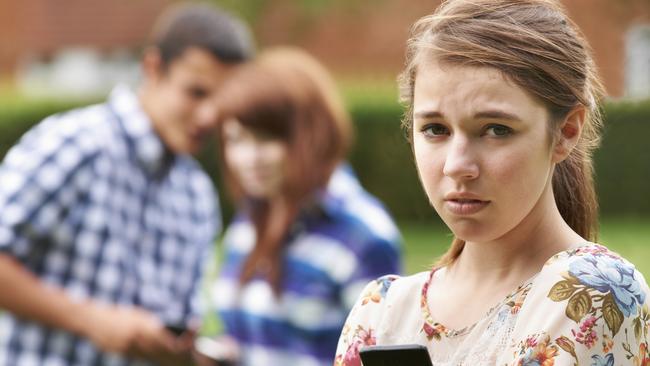Landmark UniSA study on school bullying finds teachers have low success rates when they try to intervene
TEACHERS have a low success rate in stopping school bullying and their attempts to help sometimes make the problem worse, a UniSA study has found.

SA News
Don't miss out on the headlines from SA News. Followed categories will be added to My News.
- Adelaide mum reunited with bully victim after 27 years
- Nearly half of all young people bullied every day at school
- Lainie Anderson: Safe schools program vital
TEACHERS have a low success rate in stopping school bullying and their attempts to help sometimes make the problem worse, a UniSA study has found.
The landmark study of 25 schools across six states and territories found schools are working hard to address victimisation and overall bullying rates have slightly declined in recent years.
But lead researcher Professor Ken Rigby said school interventions needed to be improved.
“Students reported that they were most likely to go to other students for help, followed by their parents, and they were least likely to go to a teacher or counsellor,” he said.
“The success rate of stopping the bullying for students who sought help from teachers or school counsellors was 36 per cent for primary school students and 22 per cent for secondary students.
“In some cases students reported that teacher interventions made matters worse.
“Many students need to be convinced that seeking help from the school if they are bullied will be helpful.”
The study into the prevalence and effectiveness of anti-bullying strategies collected data from 1688 students, 451 teachers and 167 parents.
It found about 15 per cent of students between Years 5 and 10 were currently being bullied, with half of those being upset by it. One in seven students had stayed away from school at least once because of bullying and more than a third said being bullied made it harder for them to do their work well.
All of the 25 schools had anti-bullying policies but half of students a third of parents were unaware of them, indicating the need for schools to promote them more.
Prof Rigby said students felt teachers were “strongly motivated” to help them but parent evaluations of how schools dealt with bullying cases were tended to be very negative.
“They were especially concerned about schools not acting promptly, not recognising the serious effects of covert bullying, not informing them of what they were doing about it and generally achieving less satisfactory outcomes for their children,” he said.
“The teachers felt they had not been trained adequately in dealing with bullying in their pre-service (university) education.”
Teachers’ knowledge about bullying was limited and many held contradictory beliefs about it. Many did not know about proven techniques, such as use of support groups, to tackle the problem.
“Schools have in recent years been able to access more and more relevant sources to address bullying but need more direction in deciding how it can be employed,” Prof Rigby said.
“What comes out of this report is that it’s important for people to think about what schools are doing, whether it is working and what needs to be improved.”
The study was funded by the federal Department of Education and Training.



